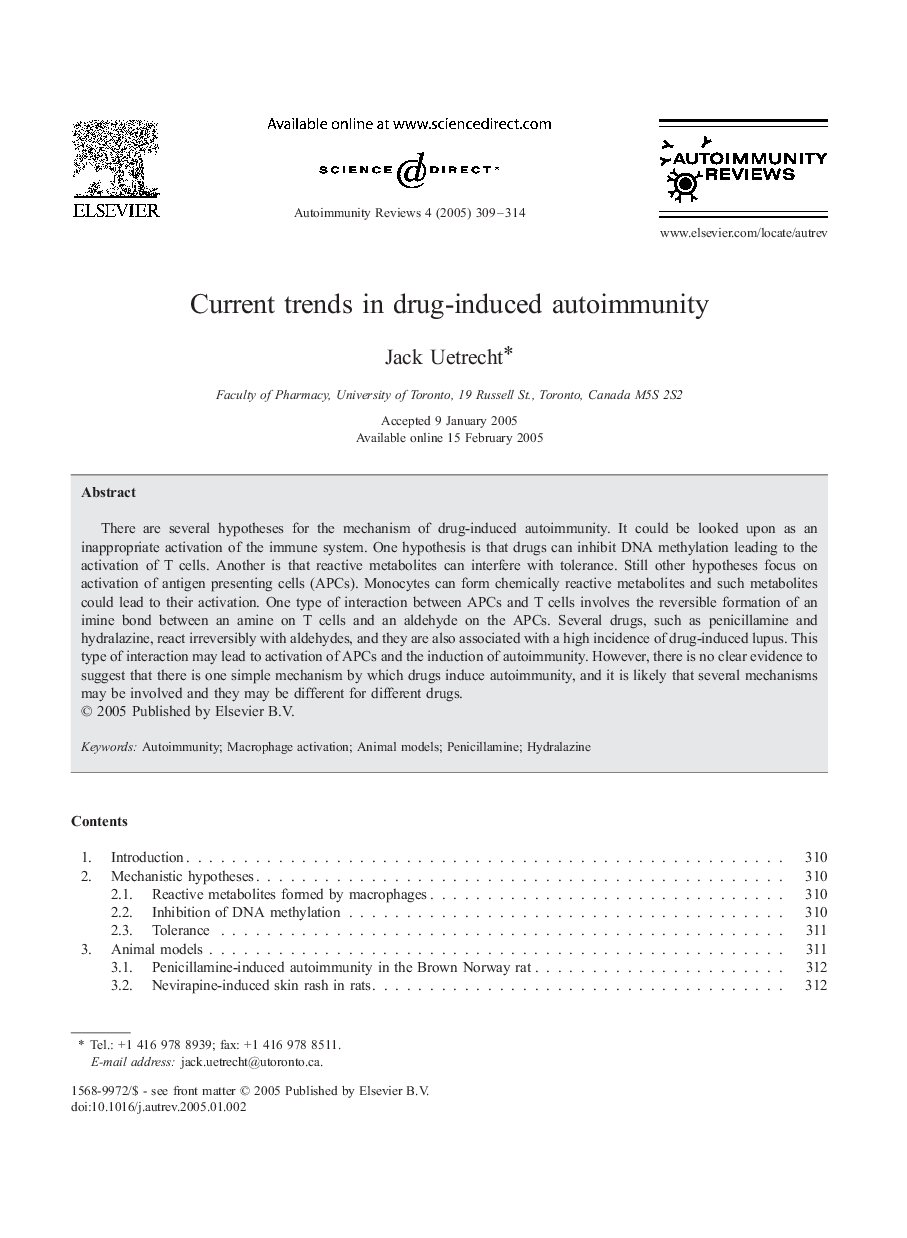| کد مقاله | کد نشریه | سال انتشار | مقاله انگلیسی | نسخه تمام متن |
|---|---|---|---|---|
| 9261555 | 1214305 | 2005 | 6 صفحه PDF | دانلود رایگان |
عنوان انگلیسی مقاله ISI
Current trends in drug-induced autoimmunity
دانلود مقاله + سفارش ترجمه
دانلود مقاله ISI انگلیسی
رایگان برای ایرانیان
کلمات کلیدی
موضوعات مرتبط
علوم زیستی و بیوفناوری
ایمنی شناسی و میکروب شناسی
ایمونولوژی
پیش نمایش صفحه اول مقاله

چکیده انگلیسی
There are several hypotheses for the mechanism of drug-induced autoimmunity. It could be looked upon as an inappropriate activation of the immune system. One hypothesis is that drugs can inhibit DNA methylation leading to the activation of T cells. Another is that reactive metabolites can interfere with tolerance. Still other hypotheses focus on activation of antigen presenting cells (APCs). Monocytes can form chemically reactive metabolites and such metabolites could lead to their activation. One type of interaction between APCs and T cells involves the reversible formation of an imine bond between an amine on T cells and an aldehyde on the APCs. Several drugs, such as penicillamine and hydralazine, react irreversibly with aldehydes, and they are also associated with a high incidence of drug-induced lupus. This type of interaction may lead to activation of APCs and the induction of autoimmunity. However, there is no clear evidence to suggest that there is one simple mechanism by which drugs induce autoimmunity, and it is likely that several mechanisms may be involved and they may be different for different drugs.
ناشر
Database: Elsevier - ScienceDirect (ساینس دایرکت)
Journal: Autoimmunity Reviews - Volume 4, Issue 5, June 2005, Pages 309-314
Journal: Autoimmunity Reviews - Volume 4, Issue 5, June 2005, Pages 309-314
نویسندگان
Jack Uetrecht,